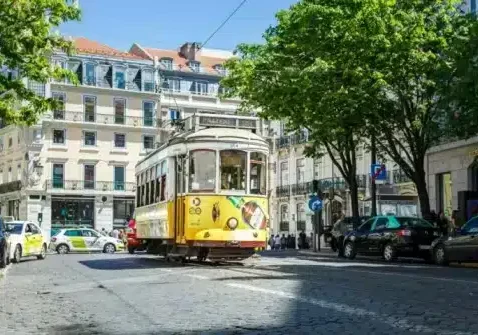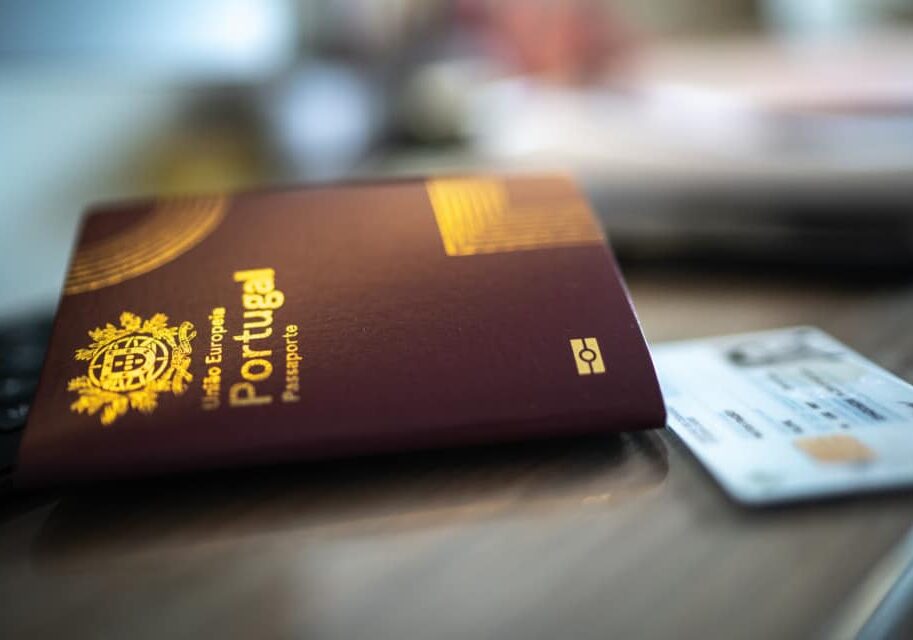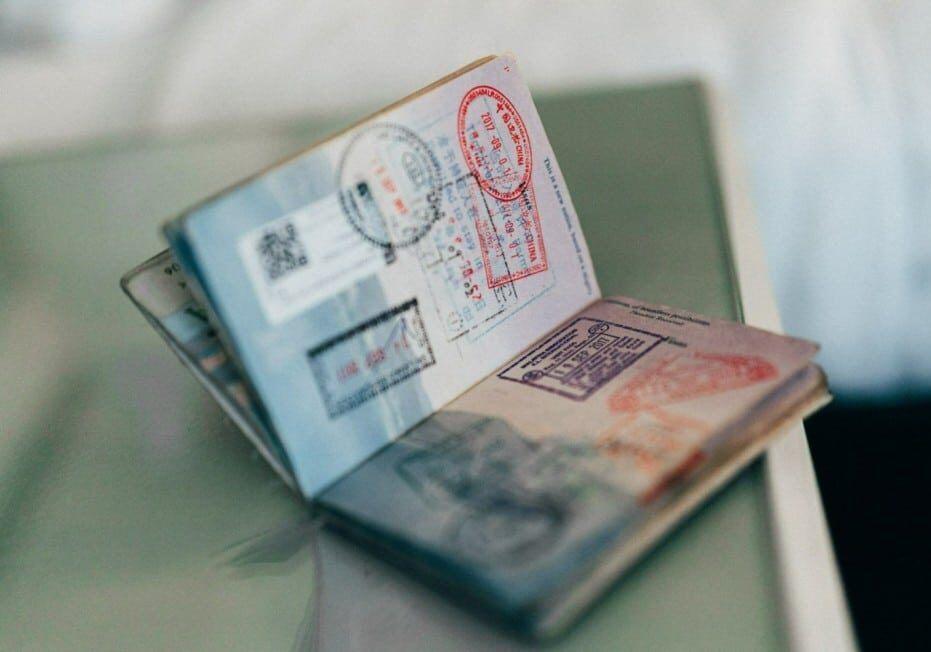Updated: July 3, 2025
Portugal’s D2 Visa is a popular choice for entrepreneurs, freelancers, and independent workers who wish to start a business or offer professional services in Portugal. This visa is intended to attract foreign nationals interested in investing in or establishing a small to medium-sized business in the country.
In this article, we’ll explore the finer details and benefits of the D2 Visa, what is required for a successful application, and the documents you will need to get your Portugal resident visa and eventual Portuguese citizenship.
What is Portugal's D2 Visa?
Often referred to as the Entrepreneur Visa, Portugal’s D2 Visa is a residence visa in Portugal designed for individuals and entrepreneurs outside the European Union (EU) or European Economic Area (EEA) who wish to work, start a business, invest in the country, or have been hired as service providers by a company in Portugal.
It caters to entrepreneurs, freelancers, and independent service providers, offering them a pathway to reside in Portugal while pursuing their business ventures. Eligibility under EU regulations places qualifying occupations as “liberal professions that provide intellectual services based on a specific professional qualification or skill.”
One of the main requirements is to submit a detailed business plan outlining your proposed venture. The Portuguese authorities will assess this plan to ensure the business is viable and beneficial to the country’s economy.
The D2 Visa allows you to apply for permanent residency or Portuguese citizenship after five years. Portuguese citizenship would grant you the benefits of living, working, and traveling freely across the EU.
NOTE: New changes to Portugal’s Nationality Laws have been proposed, where the residency requirement before requesting Portuguese nationality may increase from five to ten years (or seven years for CPLP nationals). This is currently a draft proposal and is not yet officially law. Read the latest updates through Global Citizen Solutions.
Portugal D2 Visa Pathways
There are two separate routes that you can take when applying for a D2 Visa, each with differing requirements:
1. Independent service providers
This route is designed for self-employed individuals, such as freelancers, who offer services to local and global clients.
Key requirements of the D2 freelancer Visa are:
- You must have a Portuguese NIF tax number.
- You will need to open a Portuguese bank account.
- You must have proof of a self-employment agreement or promise of a self-employment agreement with a company based in Portugal.
If you are a freelancer with clients based outside of the country, you may still qualify for the Digital Nomad Visa in Portugal.
2. Entrepreneurs
This route is designed for individuals who would like to start a business in Portugal or grow an existing Portuguese business. This route applies to you if you plan to:
- Acquire a Portuguese business
- Expand a business that already exists abroad
- Prove your intention to invest in the Portuguese territory through a business plan
Key requirements for the D2 Immigrant Entrepreneur Visa include:
- You must have a Portuguese NIF tax number.
- You will need to open a Portuguese bank account.
- You must establish a Portuguese limited company (LDA).
- You will need to employ a qualified accountant that is experienced in the Portuguese tax system to assist with corporate tax and the other financial duties of the business.
- You must prove that you have sufficient financial means to initiate and manage your business, including the ability to pay annual corporate tax and social security contributions.
Benefits of the D2 Visa in Portugal
The Portugal D2 Visa is one of the best residency visas in the EU, providing benefits such as family reunification, visa-free travel across the Schengen Zone, and a route to EU citizenship; in addition to living in a beautiful country with amazing culinary treats. Below, we outline the benefits that come with having a D2 Visa.
 Opportunities for entrepreneurs
Opportunities for entrepreneurs
The D2 Portuguese residency visa allows you to establish a business or work as an independent professional in Portugal, providing opportunities for your entrepreneurial endeavors.
Major cities such as Lisbon and Porto offer a variety of affordable, modern business spaces. Additionally, long-term office rentals in Lisbon can be up to 80 percent cheaper than in startup locations in London, making Portugal an attractive option for startups.
 Visa exemption across the Schengen Area
Visa exemption across the Schengen Area
The D2 Visa allows unrestricted entry and movement within the Schengen Area, which includes 27 European nations, without requiring an additional visa. This privilege gives you the same travel freedoms as European Union citizens, making it easier to network and develop business relations across Europe and the Schengen Area.
 Family reunification
Family reunification
The D2 Visa also allows for family reunification in Portugal, meaning that family members, such as spouses, children, parents, or dependent siblings, can reside with you in the country.
 Route to permanent residency and citizenship
Route to permanent residency and citizenship
After living in Portugal legally for five years, you may qualify to obtain a permanent residence permit and Portuguese citizenship through the country’s residency program. It’s important to note that obtaining citizenship typically requires passing a basic test in the Portuguese language and culture.
 Residential rights and service access
Residential rights and service access
With Portuguese residency, you and your family members gain access to the public healthcare system. Your children can also register in the public education system, ensuring essential services for your family’s well-being.
 Tax benefits for professionals
Tax benefits for professionals
D2 Visa holders working in certain industries may qualify for the new Tax Incentive for Scientific Research and Innovation (IFICI), also called Portugal’s NHR 2.0.
Qualifying professionals may benefit from a flat 20 percent tax rate on income earned in Portugal and tax exemptions on certain foreign income, such as dividends, interest, and rent. These benefits will last for 10 years.
Portugal D2 Visa Requirements to Apply
As with any visa for Portugal or another EU country, you must meet several general requirements to be granted access to the country for business purposes.
To apply for the D2 Visa Portugal, you must:
- Age: Be over the age of 18
- Criminal record: Hold a clean criminal record
- Financial stability: Demonstrate funds to support yourself and dependents (if applicable)
D2 Visa Portugal Required Documents
Together with the proof required for your chosen route, there are additional documents that must accompany your application.
Documents required for your business
The following documents relating to your business activities are required when applying for the D2 Visa Portugal:
1. Business plan

Your business plan should contain:
- Personal and company NIF tax number
- Social security number and tax receipts
- Business certification
- Details of your Portuguese business bank account
- Bank statement with proof of capital transfer
- Employment contracts for your business
2. Investment declaration
You will need a declaration indicating how you will be investing in Portugal, detailing the investment type, timeframe, and worth. Here, you can detail the economic, social, scientific, technological, or cultural value of your business. You should also mention whether you will be creating jobs in Portugal, as this will help your application.
3. Financial ability
You will need to prove that you are financially capable of maintaining your business throughout your stay in Portugal and prove you will be able to generate enough business income to pay corporate tax in Portugal.
4. Share capital
This is the minimum initial investment needed to prove your business will run smoothly. Small businesses in Portugal usually need capital of about €5,000.
5. Company establishment
You will need to provide evidence of having established a company in Portugal or financially proving your ability and intention to do so.
6. Service contract
Independent service providers must include a written contract or a proposal outlining their services.
Personal documents required for your business
The following personal documents are required for your Portugal Entrepreneur Visa application:
1. NIF and Portuguese bank account
To apply for a D2 Visa in Portugal, you must secure a Tax Identification Number (NIF) from the Portuguese tax authorities. You’ll also have to open a personal and business Portuguese bank account. These two steps are essential for the D2 Visa application process.
2. Criminal background check
A clear criminal record from every country you have lived in for more than a year is usually required. The criminal record certificate cannot be older than three months.
3. Tax representative
Non-EU citizens must also appoint a tax representative in Portugal as part of the D2 Visa application process.
4. Financial ability to support yourself and dependents
In addition to your business’s financial statements, you must also provide proof of sufficient financial resources to support yourself and your dependents for a year, such as bank statements separate from your business earnings.
You are required to maintain a minimum balance of €10,440 in a bank account in Portugal throughout the application period. An extra 50 percent (€5,220) is needed for a spouse or any other family member over 18, and an extra 30 percent (€3,132) is needed for each dependent child under 18 years old.
5. Proof of accommodation in Portugal
Proof of secure accommodation in Portugal must be provided. This can take the form of a rental contract, property ownership documents, or a letter of invitation from a friend or relative who is a legal resident of Portugal.
Finding the perfect apartment when renting in Portugal can be daunting – especially if you’ve never been to Portugal before. Our team at Goldcrest will be happy to offer our rental search services if you would like to take the stress out of finding the perfect property.
If you prefer to buy a home in Portugal, we can assist with that, too. The market for buying property in Portugal has experienced significant steady growth and has become an attractive and profitable investment option in recent years. Factors such as a stable economy, affordable prices, and a high quality of life have contributed to its appeal among both domestic and foreign buyers.
6. Travel insurance cover for at least six months
It is recommended that a minimum of six months of travel insurance coverage be provided, including the initial four-month Portugal D2 Visa period and the waiting period for registering as a resident with AIMA Portugal (Agency for Integration, Migration, and Asylum).
After obtaining your temporary residence permit, you will be eligible for Portuguese state healthcare.
7. Other personal documents
- Completed D2 Visa application form
- A passport valid for six months after your intended stay in Portugal, plus a certified copy
- Two color photographs (3x5cm)
- Proof of health insurance coverage
How to Apply for a D2 Visa

While the steps required can vary depending on where you apply, the general conditions for a successful application are:
- Obtain a Portuguese Taxpayer Identification Number (NIF)
- Open a personal and business banking account in Portugal and deposit funds into it
- Arrange for long-term accommodation in the country by either buying or leasing a property for a minimum of one year, even if the agreement includes a provision for early termination.
- Apply online via the eVisa Portal or VFS. This can be done through the Portuguese Consulate or Embassy in your home country.
The D2 application process occurs in two phases. In the first phase, most of your documents, including your business plan, are submitted to the Portuguese Embassy or Consulate in your country of residence.
Upon approval of your application, you will be asked to attend an interview. If successful, a four-month D2 Visa will be granted, enabling you to travel to Portugal and enter the country.
The second phase happens in Portugal, where you apply for residency through AIMA. The D2 Visa grants you a 4-month stay in Portugal, during which time AIMA schedules an appointment for you, and you’ll be sent an appointment date with your visa.
If all available AIMA appointment slots exceed your visa’s validity, your legal status in Portugal remains unaffected past the four-month visa term as long as an appointment is scheduled.
D2 Visa application costs and fees
The following costs, fees, and financial requirements are needed for your Portugal D2 Visa application:
- €90 Portuguese Government fee to apply for the D2 visa
- €155.50 Residence permit card fee
- Demonstrate your financial capability to operate the intended business
- Proof of having at least €10,440 to sustain yourself in Portugal for a year
- Proof of rented or owned accommodation in Portugal
- €400+ to purchase health insurance
- Legal fees and professional visa advice, if needed (amount will vary based on the services provided)
Application process timeline
The timeline for getting a D2 Visa in Portugal is usually two to three months, provided you already have a business plan or company in Portugal.
After you have your visa to enter Portugal, you will then be able to make an appointment with AIMA (Agency for Integration, Migration, and Asylum in Portugal) to apply for a Portuguese residence permit, which could take several months more.
How to Apply for Permanent Residency or Citizenship After the D2 Visa

- Residency: You must have lived in Portugal for at least five years.
- Financial stability: You must prove that you have stable and regular resources sufficient to support yourself.
- Accommodation: You must demonstrate that you have a place to live in Portugal.
- Clean criminal record: You must have a clean criminal record.
- Social Security: You must register with the Portuguese Social Security and demonstrate regular contributions throughout your residence.
- Health insurance: Although you will have access to the national healthcare service as a legal resident, you must possess valid health insurance until you become a permanent resident.
- Integration into Portuguese society: This could include factors like Portuguese language proficiency, community involvement, or other evidence of your commitment to living and integrating into Portuguese society.
If you meet the requirements and gather the necessary documents as proof, you must book an appointment with AIMA to submit your permanent residency application.
The same requirements must be met when applying for Portuguese citizenship through the Civil Registry. However, to become a Portuguese citizen, you must prove proficiency in the Portuguese language. This is only required for applicants from non-Portuguese-speaking countries.
Taxes for Entrepreneurs in Portugal
D2 Visa applicants who do not qualify for the IFICI tax regime will be taxed at progressive rates of 25 to 28 percent. You’ll also need to pay corporate tax (IRC) in Portugal for your business. The tax rate is 21 percent, but small and medium-sized companies will only pay 17 percent on their first €25,000 of profit.
Employers must also pay social security (TSU) for employees, contributing 23.75 percent of each salary, while employees pay an additional 11 percent of their wages.
Portugal D2 Visa vs the D7 and Golden Visas: What option to choose?
If you’re considering a move to Portugal, it’s important to understand the key differences between the D2 Visa, D7 Visa, and Portugal Golden Visa programs so you can choose the one that best suits your needs.
- D2 Visa: Best for entrepreneurs, freelancers, or small business owners who want to invest or start a business in Portugal. Requires a detailed business plan and proof of sufficient funds to support the venture and yourself.
- Portugal D7 Visa: Ideal for retirees or individuals with stable passive income (like pensions, rental income, or dividends). No business or investment is required, just proof of regular passive income above the Portuguese minimum wage.
- Portugal Golden Visa: Designed for those looking to gain residency through larger financial investments, such as qualified investment funds. Requires significant capital but offers flexibility, including low minimum stay requirements (average of seven days per year), whereas the D2 and D7 Visas require you to live in Portugal.
All visas grant visa-free travel in the Schengen Area and allow for family reunification. They all grant rights to live and work in Portugal and benefit from the healthcare and education system. Also, all three visa types provide a pathway to eventual permanent residency and citizenship.
Goldcrest: How We Can Help You
Goldcrest is a buyer’s agent that is based in Lisbon. We provide expert, impartial advice on real estate investments and how to buy property in Portugal. From scouting out the perfect property through to property acquisition, we have you covered throughout the process.
If you are looking to purchase property in Portugal, don’t hesitate to get in touch. Our team of skilled experts is available to solve all your real estate doubts, helping you with the property search and offering insightful expertise and strategic advice.
Why choose Goldcrest?
- Local knowledge: With offices located across Portugal, our presence nationwide allows us to assist you personally across the country.
- Independent service: As an independent buying agent, we do not represent any development or project. Our service is entirely tailored toward each individual client, providing you with everything you need to secure the perfect property at the best possible price. As an impartial advisor on the market, we work solely on behalf of our client and provide a service tailored to your needs and requirements.
- Streamlined process: Our real estate agents speak English and Portuguese, and our service is completely focused on providing you with a hassle-free buying experience, saving you time.
- Experienced team: Our expert real estate team has a vast local knowledge of the Portuguese property market. We have cutting-edge technology and metasearch tools at your disposal to provide full market coverage, ensuring the best investment choices and negotiated prices.
- Network of partners: We have a close network of partners, including lawyers, property management services, builders, architects, designers, and landscape gardeners, again saving you time and hassle by providing you with trusted experts in their field of work.
Frequently Asked Questions About Portugal’s D2 Visa
What is the D2 Visa?
The D2 Visa is intended for individuals who wish to start a business, invest in a business, or carry out entrepreneurial activities in Portugal. It is commonly used by startup founders, small business owners, and freelancers who intend to live and work in Portugal.
What types of businesses qualify for the D2 Visa?
The business must be sustainable and make a positive contribution to the Portuguese economy. This can include small retail ventures as well as tech, tourism, or real estate startups. While there isn’t a specific minimum investment requirement, the business plan and its potential impact are important factors for approval.
What is the Portugal D2 Visa processing time?
The processing time for the D2 Visa usually takes two to three months, but it can take longer if your business plan or other documents are not in order. The processing time depends on the applicant’s country of origin and the complexity of the business plan. It is recommended that applicants apply well in advance of their intended relocation date.
Can the D2 Visa lead to permanent residency or citizenship?
After holding a D2 Visa for five years, you can apply for permanent residency or citizenship in Portugal, provided you meet the language and residency requirements.
Can family members join under the Portugal D2 Visa program?
Yes, the D2 Visa allows for family reunification. Spouses, minor children, and dependent relatives can join the primary applicant in Portugal under this visa scheme.
Do I need to speak Portuguese to apply for the D2 Visa?
While there is no language requirement for the initial D2 Visa application, applicants seeking permanent residency or citizenship must demonstrate basic proficiency in Portuguese (usually A2 level).
What is the success rate of a D2 visa in Portugal?
The success rate for Portugal Entrepreneur Visa applications is 99.4 percent.
What are the income requirements for the D2 Visa?
There’s no fixed income threshold like with the D7 Visa. However, you must show enough funds to support yourself plus your dependents for the duration of your stay, and you will need to show the financial ability to maintain your business in Portugal (an adequate amount according to your business plan).
How much does it cost to get a Portugal D2 Visa?
Prepare for the following costs to meet Portugal D2 Visa requirements:
- €90 Government fee to apply for the D2 visa
- €155.50 Residence permit card fee
- Proof of having at least €10,440 to sustain yourself in Portugal for a year
- Proof of rented or owned accommodation in Portugal
- €400+ for health insurance
- Legal fees and professional visa advice, if needed (amount will vary based on the services provided)
Are there limitations on the type of business for the Portugal D2 Visa?
No specific sector is prohibited, but your business should be legal, economically viable, and ideally create jobs or contribute to Portugal’s economy.
Golden Visa, D2 Visa, or D7 Visa, which one to pick?
The Portugal Golden Visa is best suited for those who prefer investing in funds, Portuguese companies, or other passive routes without the need to actively run a business or live full-time in Portugal. In contrast, the D2 Visa is ideal for entrepreneurs who want to actively establish and operate a business in the country.
Meanwhile, the D7 Visa is most appropriate for retirees or individuals who have a stable source of passive income, such as pensions, rental income, or investments. Ultimately, the right choice between these visas depends on your income source, investment appetite, and the kind of lifestyle you wish to pursue in Portugal.
How does the D2 Visa differ from the Portugal HQA Visa?
The D2 Visa focuses on entrepreneurs and self-employed individuals with a solid business idea and strong business plan.
The HQA (Highly Qualified Activity) Visa is targeted towards highly skilled professionals in certain sought-after industries and can be obtained through a job offer or adequate qualifications.
Do Portugal D2 Visa holders need to pay taxes?
Yes, D2 Visa holders are typically liable for personal income tax if they qualify as tax residents (reside in Portugal over 183 days per year), and their income earned during their business activities in Portugal will also attract corporate tax.
Can a US citizen start a business in Portugal?
Absolutely. US citizens can open businesses in Portugal, either by starting a new one or moving their existing business.
Do Portuguese Entrepreneur Visa applicants need health insurance?
Yes, you will need to show proof of health insurance covering medical expenses in Portugal until you gain access to the national health system. Health insurance prices range from €300 to €1,000 a year, depending on the company and the coverage you need.
Is there a Portuguese financial institution that offers business funding for foreigners?
Yes, several Portuguese financial institutions offer business funding for foreigners. Banks like ABANCA are known for catering to expats and offering tailored services for non-residents. Additionally, venture capital firms like Portugal Ventures and angel investor networks are also available to provide funding.
The Portuguese Government also advertises financial assistance for companies in Portugal and shares various funding initiatives for entrepreneurs in Portugal, too.
